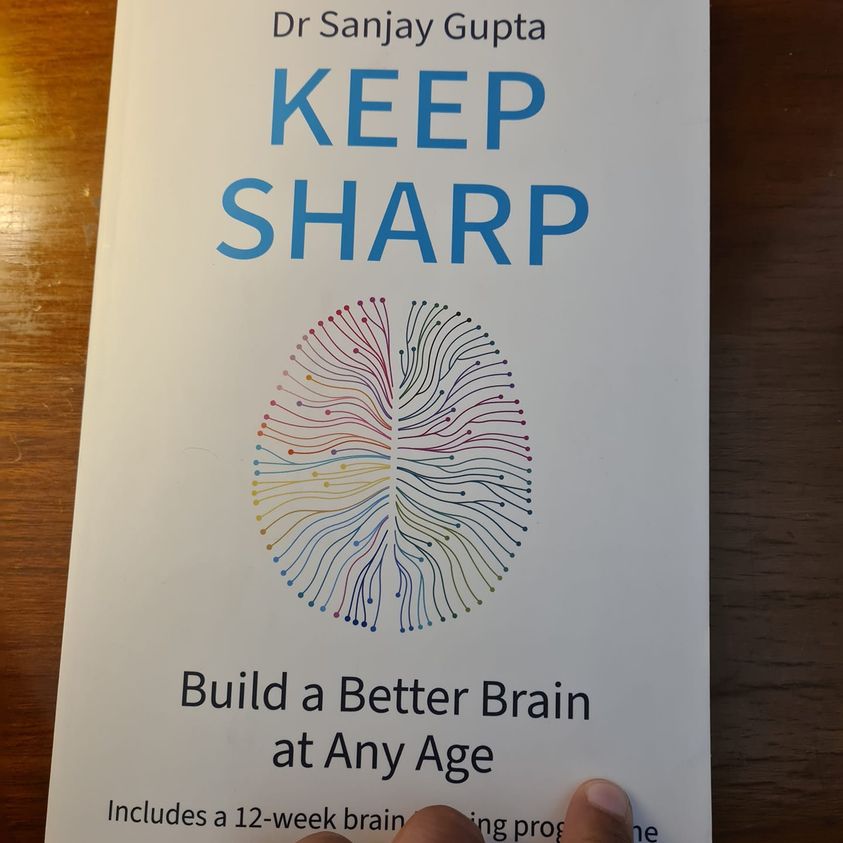“Keep Sharp” by Dr Sanjay Gupta

Dr SanjayGupta’s new book, Keep Sharp, is an absorbing read about how to keep oneself fit and healthy, especially our brains. He shares the widely held belief that grey matter stops developing in early adulthood. But now new theories say that that is no longer true. The brain can remain sharp if encouraged to do so by adopting better lifestyle behaviour such as regular exercise, eating home cooked food ( preferably slow cooked and less reliance on takeaways), meditating, reading more, less of digital consumption and definitely hydrating more with regular water than sugar-based drinks. His concern stems from the growing number of people who are diagnosed with dementia, a condition for which no known cure exists as of now, but cannot be ruled out in the near future given the rate at which medical science is advancing. Dr Gupta, who has travelled widely as a reporter with the CNN and continues to practice as a brain surgeon recognises the urgent need to appeal to people while they are healthy to take charge of their lives. He is very keen that folks wrought a change in their life now with the hope that it will mean a better old age. He also focuses on caregivers or as they are defined as now, ” invisible second patients” and the need to understand the stress that they imbibe. Caregiver burnout is very real and hence, self-care is critical. Perhaps it’s design in the book is unintentional but the message that comes across is that devastating impact of caregiving is akin to being in a war zone. But he states often enough in the book that “I’ve noted that the people who live better– and longer — are the ones who hold on to hope.”
I like the way he has likened caregivers to “invisible second patients”. Apparently it is parlance commonly used in the medical fraternity. It has not been coined by him. But at least he has made it visible to the lay reader and I think by doing so, it has been a phenomenal act upon his part. It is almost cathartic for a medical professional to recognise how stressful caregiving can be.
Having been a caregiver myself for many years, it’s heartening to read an experienced doctor confirm many of the practices that one has unwittingly woven as regular practice into one’s life. For example, eating a balanced diet, preferring slow cooked homefood to commercial food, no snacking, water vs juices/sodas, daily exercise, reading etc. Perhaps it happened by witnessing the slow degeneration of a healthy individual. A large part of the cargiving is taken up by creating the right meals and exercise. So basic. As he constantly emphasises in his book that these are some aspects of one’s cargiving that should be non-negotiable. Everyone is busy but not busy enough to fit in some self-care on a daily basis. It helps in the long run as he can affirm from the patients he meets or the autopsies he has conducted and reviewed the state of brains.
Dr Gupta has created as 12-week brain training programme that may sound easy or tough depending on the nature of one’s current lifestyle. But it is doable. Worth exploring.
Read it.
3 February 2021
